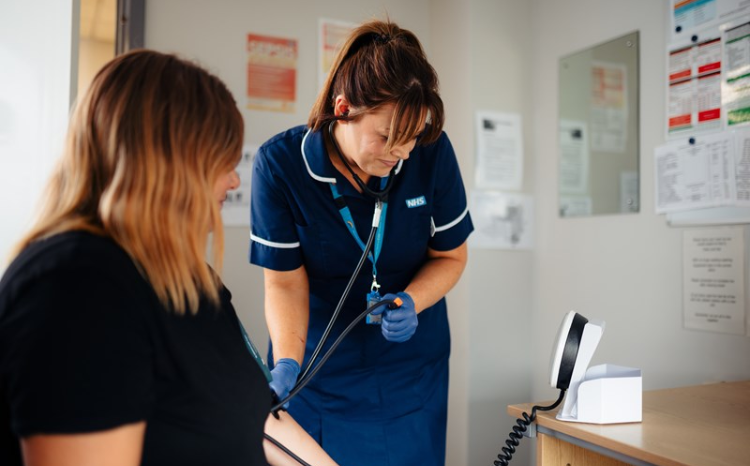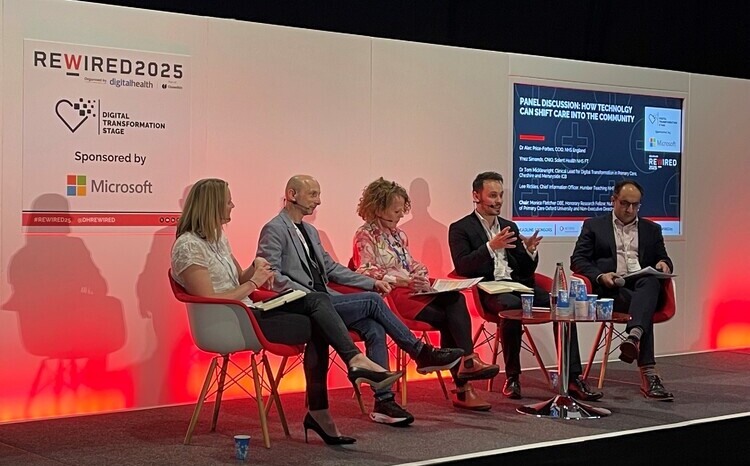Digital health leaders react to 10 year health plan consultation
- 22 October 2024

- Prime minister Sir Keir Starmer said that the NHS must make “much more use of technology”, as he launched a consultation on the future of the health service
- The consultation is intended to help inform the government's 10-year health plan, which is due to be published in spring 2025
- Digital health leaders reacted to the announcement, which includes plans for a single digital health and care record for patients
Prime minister Sir Keir Starmer said that the NHS must make “much more use of technology”, as he launched a consultation on the future of the health service.
Speaking at an event in east London on 21 October 2024, Starmer said: “We need to go from analogue to digital, we need to use much better technology, whether that is in the ambulance service, in our hospitals, in our neighbourhoods, making much more use of technology.”
Starmer invited members of the public, NHS staff and experts to share their views, ideas and experiences via the Change.NHS.uk online platform to help inform the 10-year health plan, which is due to be published in spring 2025.
Wes Streeting, health secretary, said that the “analogue NHS” needs to shift to become a system which is “not just benefiting from but driving the revolution in data, life sciences and med tech”.
A press release, published on 21 October 2024, also announced plans for a single patient record – also known as a ‘digital patient passport’ – which will summarise all of a patient’s health information, test results and letters in the NHS App.
Streeting first announced the plan to create a single patient data record at the Royal College of General Practitioners Conference in Liverpool on 4 October 2024.
Digital Health News asked health leaders for their reactions to the government’s announcements. Here’s what they had to say:
Ben Jeeves, chair of the Digital Health Networks Clinical Safety Officer (CSO) Council
“This is a pivotal moment for all stakeholders to have their say on the future of the NHS.
“There is arguably no more important time than now for everyone to have their say on how the future of the NHS should look, to help define how it will operate and how it will meet the needs of our population.”
Tom Whicher, chief executive and founder of DrDoctor
“Finally! This is great news for the NHS – we need to create one front door that delivers patients the care they need, when they need it and a digital patient passport is an important part of that.
“However, the most important thing is we make it easy for patients to interact with the health service – by giving them their appointment history and make it easier for them to book an appointment and share information with their doctors so they can be prioritised based on where they are on their care journey.
“The patient passport is a great first step but it’s not a silver bullet on its own.
“With all health records in one place – managed sensitively and correctly – we will be one step closer to the mission of prevention over cure and NHS clinical staff will have efficient access across care types and specialities, reducing time-intensive admin and shortening the path to treatment.”
Steve Wightman, general manager – healthcare, Access Health Support and Care
“Creating a single patient record through the NHS App will make it easier for people to access their health information in one place. However, for the 10-year plan to succeed and tackle the shift from analogue to digital, we have to look beyond the app.
“By committing to a long-term vision, the government has the opportunity to take whole-system action, which uses digital and data in a more transformational way and considers the integration of data and communication between healthcare professionals.
“Without this joined-up approach, the duplication of efforts and inefficiencies across different teams and care settings are at risk of continuing.”
Mark Hutchinson – senior vice president: healthcare strategy and transformation, EMEA at Altera
“We are eager to see further detail from the data bill to be unveiled. A commitment from the government to support a single digital health and care record for patients has the potential to transform experiences for both patients and care professionals.
“Giving patients visibility of their own complete health record and enabling health and care professionals with a ‘single source of truth’ will enable safer, better, and more efficient care.
“I hope that this will prompt suppliers across the sector to commit to open ways of working, rather than continuing to advocate for inflexible legacy systems.”
Javvad Malik, lead security awareness advocate at KnowBe4
“Overall this is a welcome move to consolidate and digitise patient records, but putting all your eggs in a digital basket is not without risk.
“Data transformation projects come with their own risks when migrating data and protecting it adequately.
“The involvement of companies like Palantir in creating a joined-up database adds another layer of complexity to the conversation, given the company’s background and the sensitive nature of the data involved.”
Darren Ransley, managing director at UK & Ireland at Better
“A single, longitudinal digital health and care record will ease the burden of care for patients, clinicians, and carers.
“Particularly for those people living with complex, long-term conditions who unfortunately currently have to repeat their health story each time they deal with a different care provider.
“Drawing together currently siloed data into a digital health record acting as a single source of truth is a fundamental building block for a sustainable, patient-centred care system.
“Where this has happened already, benefits are being seen on a region-wide scale, such as with care planning for urgent care in London via OneLondon’s shared care record. I hope with the government’s support, this progress can be scaled and accelerated nationally.”
Tony Yates, technical director at Livi UK
“It is encouraging to hear the government talking up the need for better data use to boost prevention, but UK healthcare is a long way off using population health data at scale to achieve this aim.
“If we are to realise the full potential of Streeting’s plans we need to ensure that we have systems that talk to one another and have common data standards (across Europe and the UK) to prevent a tiered health data system, along with clear definitions of healthcare data and its intended use e.g. special category data use to assure patient safety and security.
“From the government we need to remove siloed medical record systems in the NHS and streamline digital records systems to improve interoperability and integration of new technologies such as AI and Large Language Models that improve efficiency and lower costs of care.”
Nick Wilson, chief executive at System C
“Streeting’s push for patients to access medical records through the NHS App is a positive start, but it’s crucial that the government ramps up efforts to integrate care with current tech systems already in place.
“A lot of suppliers have an amazing opportunity to help with national and regional data sets for population health, maternity and pharmacy for example. Working with existing technology in the system will help cut delays and prevent the chaos that comes with unproven solutions in healthcare.
“The resolve to make progress is still lacking against the hurdles of organisation, finance and culture. It’s clear: we urgently require a paradigm shift in funding distribution across care settings to truly drive integration.”
Richard Pugmire, chief executive at Answer Digital
“The new data bill enabling a single health record via the NHS App is a truly significant moment and aligned to the 10-year-plan shows a future vision for healthcare in England.
“The recent Tony Blair Institute report called for a single digital health and care record, alongside the recent Darzi report findings this is a rallying cry for the streamlining of records and data across the NHS and beyond.
“This is by no means a small task. The key will be to ensure that patient data is managed correctly and securely to ensure that the general public put their trust into the app and embrace the new approach.”
Graeme Stewart, head of public sector at Check Point Software
“This project offers significant advantages for both citizens and medical practitioners: standardised records, centrally stored and easily accessible.
“However, the very same centralisation poses risks—everyone’s records in one place, easily accessible to anyone with the right credentials.
“The worst-case scenario involves a cybercriminal breaking in, stealing the data, and using ransomware to render the system unusable.
“Given the scale, this database could soon become the most targeted in the UK, demanding the highest level of cybersecurity.”
Julian Coe, managing director at X-on Health
“Following the recent findings of the Darzi report we welcome the announcement of the NHS 10 Year Plan and the new data bill to enable a single digital health record via the NHS App.
“This is an important step in the history of healthcare in England, and with primary care being the front door to the NHS it makes complete sense to ensure patient information is shared across both primary and secondary care settings.
“We are working closely with GP practices across England and know first-hand that the NHS App is currently not used as widely as it could be.
“Ensuring that patients know the range of options available to them and are aware of the importance of using the app will be a key element in making this a success.”
Patrick Tiquet, vice president of security and compliance at Keeper Security
“The NHS App will provide patients with access to their medical records, test results and doctors’ letters whenever they need them, offering greater convenience in managing their health.
“However, with this increased access comes a heightened responsibility to protect sensitive patient data. Privacy, data security and usability must be central to the app’s design and operation.
“Ensuring robust encryption and strict access controls is critical to safeguarding this information, ensuring that only authorised users can access it.”




